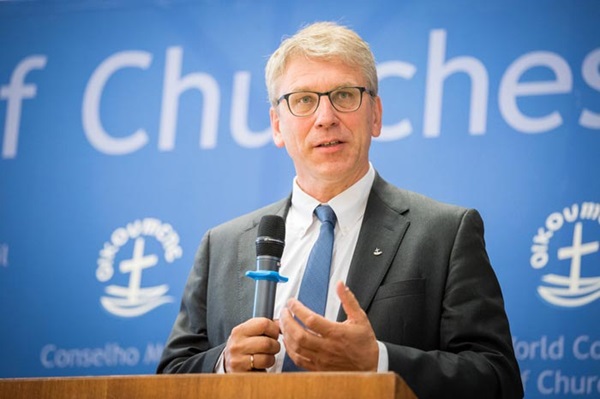More than 550 people - among them 130 children as well as women and elderly people - have been killed, and at least 2,500 have been wounded since the bombardment of Eastern Ghouta began on 18 February.
"The World Council of Churches is saddened and shocked to note that this is still happening despite the Security Council resolution 2401 adopted unanimously on 24 February 2018, imposing an immediate humanitarian ceasefire," the statement reads. "The continuation of the Syrian army military offensive targeting civilians and preventing access of humanitarian aid to a civilian population, who has been under siege for the last five years, is morally and ethically unacceptable and condemnable by all norms and virtues, as well as by international law and international humanitarian law."
 |
The WCC, which has always condemned the targeting of civilians by all parties to the conflict, urgently called upon the UNSC, and particularly those countries that have direct influence on the ground, to immediately put an end to the ongoing tragedy in Eastern Ghouta, and recently in Efrin, as well as in other besieged regions.
"Our hearts and prayers are with all those in Syria who are suffering from war and violence, from injustices and oppression, and from being forgotten by the international community," the statement concludes. "We ask God to comfort all those who have lost their beloved ones. We affirm that we stand in solidarity with the suffering people of Syria and hope that their aspirations for freedom and human dignity will be reached soon through putting an end to this absurd war and engaging in the political process led by the UN in accordance with relevant UNSC resolutions."
WCC general secretary Rev. Dr Olav Fykse Tveit said: "The world has to ensure that the people of Syria can now see an end to these actions of war and inhumane conditions. Enough is enough!"
World Council of Churches website
One of seven apportioned giving opportunities of The United Methodist Church, the Interdenominational Cooperation Fund enables United Methodists to share a presence and a voice in the activities of several national and worldwide ecumenical organizations. Please encourage your leaders and congregations to support the Interdenominational Cooperation Fund apportionment at 100 percent.





